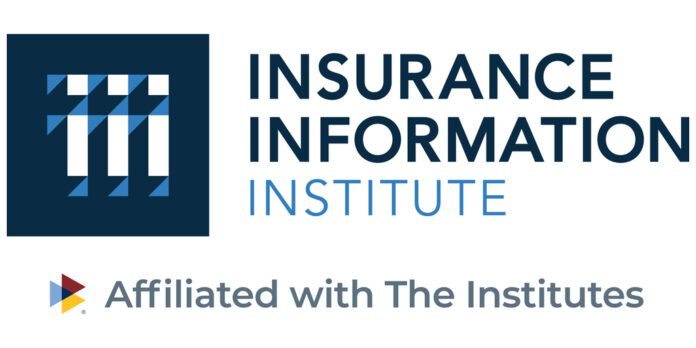NEW YORK–(BUSINESS WIRE)–The U.S. is experiencing its costliest year ever in 2023 for severe convective storms, with insured losses from these events exceeding $50 billion through the end of September, according to the Insurance Information Institute (Triple-I.)
Severe convective storms include natural catastrophes such as thunderstorms with lightning, hail, tornadoes, and derechos, which are organized lines of thunderstorms with widespread damaging winds. Tornadoes in Arkansas, Illinois, and Mississippi caused a significant loss of life and property damage in 2023’s first-half. They were followed by this summer’s intense hailstorms in Colorado and Minnesota, among other states.
U.S. auto, home, and business insurers cover insured properties impacted by wind, hail, and lightning-caused fires. Flood-caused damage to private-passenger vehicles is covered under the optional comprehensive portion of a personal auto insurance policy.
“A $50 billion loss for a single peril is a big deal,” said Steve Bowen, chief science officer, Gallagher Re, who collaborated with Triple-I on its just-released Issues Brief, Severe Convective Storms: State of the Risk. “In fact, the U.S. has had six years since 2010 where all annual catastrophe losses combined did not reach this threshold.”
The higher dollar amount of the insured losses can be attributed in part to these events striking densely populated U.S. communities, the site of homes and commercial buildings which are costly to repair and replace, a Swiss Re study cited by Triple-I found. The 2023 weather and climate disasters causing at least $1 billion in damage, both insured and uninsured, are chronicled by the federal government and featured in a chart which is incorporated into Triple-I’s latest Issues Brief.
There are steps individuals, communities, and businesses can take to manage these risks and to mitigate against severe convective storms, the Triple-I Issues Brief states. Two of them include:
- Secure the property, build in resilience: In areas where either tornadoes or straight-line winds occur suddenly, secure any objects which might become projectiles. Make sure all buildings are well-constructed and maintained.
- Evolving insurance approaches: After incurring significant storm-related losses, insurers are asking policyholders to share more of the risks with them by taking higher deductibles. A deductible is the amount of loss paid by the policyholder. Parametric insurance, which pays its policyholders a specific dollar amount if an event in the policyholder’s community meets certain criteria, is another emerging approach. The payouts are made even when the policyholder’s property is unaffected.
|
RELATED LINKS |
|
|
Article: |
|
|
|
|
|
Facts and Statistics: |
|
|
|
|
|
Triple-I Blogs: |
Attacking the Risk Crisis: Roadmap to Investment in Flood Resilience (2023) |
|
|
About the Insurance Information Institute
With more than 50 insurance company members — including regional, super-regional, national, and global carriers — the Insurance Information Institute (Triple-I) is the #1 online source for insurance information in the U.S. The organization’s website, blog and social media channels offer a wealth of data-driven research studies, white papers, videos, articles, infographics and other resources solely dedicated to explaining insurance and enhancing knowledge.
Unlike other sources, Triple-I’s sole focus is creating and disseminating information to empower consumers. It neither lobbies nor sells insurance. Triple-I offers objective, fact-based information about insurance – information that is rooted in economic and actuarial soundness. Triple-I is affiliated with The Institutes Risk and Insurance Knowledge Group.
Contacts
New York Press Office, Michael Barry, 917-923-8245, michaelb@iii.org







